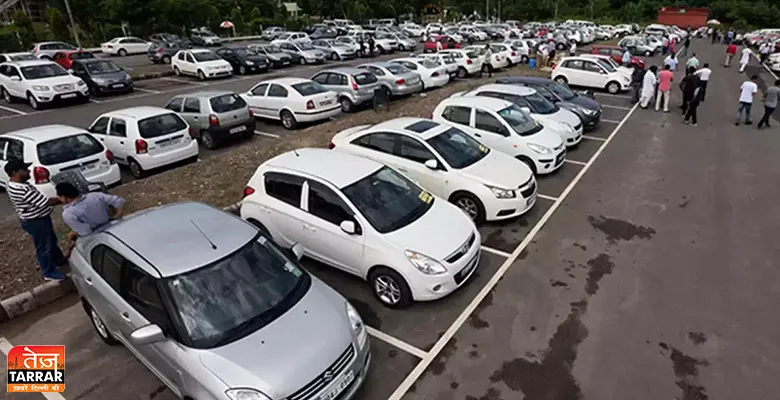Starting Wednesday, parking charges in Lutyens’ Delhi will increase significantly as authorities respond to rising pollution levels in the capital. The New Delhi Municipal Council (NDMC) has implemented a hike in parking fees under the Graded Response Action Plan (GRAP) Stage II, which aims to curb the use of private vehicles. The previous rate of Rs 20 per hour for four-wheelers has now doubled to Rs 40 per hour, with a maximum of Rs 200 for 24 hours. For two-wheelers, the charge has increased from Rs 10 per hour to Rs 20 per hour, with a maximum of Rs 100 for 24 hours. These changes, however, exclude on-street parking sites and monthly pass holders.
The rise in parking fees is one of several measures introduced under GRAP II to address Delhi’s escalating air pollution, which typically worsens during the winter months. While the NDMC has swiftly implemented the new charges, the Municipal Corporation of Delhi (MCD) has yet to follow suit, citing the need for the proposal to be passed by its governing body. Nonetheless, pollution control efforts are ramping up across the city. The Delhi government has deployed over 6,000 workers to manage road dust, and the Delhi Metro will operate additional services to encourage public transport usage.
From a sustainability perspective, the increase in parking fees is a strategic move to discourage the use of private vehicles, which contribute significantly to Delhi’s pollution levels. By making parking more expensive, the authorities hope to shift more commuters towards environmentally-friendly public transport options such as the Delhi Metro and buses. The introduction of these measures is vital as the city grapples with its environmental challenges, aligning with the broader goals of sustainable urban mobility.
Civic authorities are also intensifying their efforts to monitor and mitigate pollution across the city. The Delhi government has allocated teams to inspect construction sites and enforce the ban on the use of coal and firewood. Water sprinkling at pollution hotspots will be increased, with the Municipal Corporation deploying 6,200 workers for this purpose. Additionally, the introduction of extra bus and metro services aims to provide viable alternatives to private vehicle usage. The efforts are part of a concerted campaign to tackle Delhi’s air quality crisis and make the capital more livable for its citizens.


